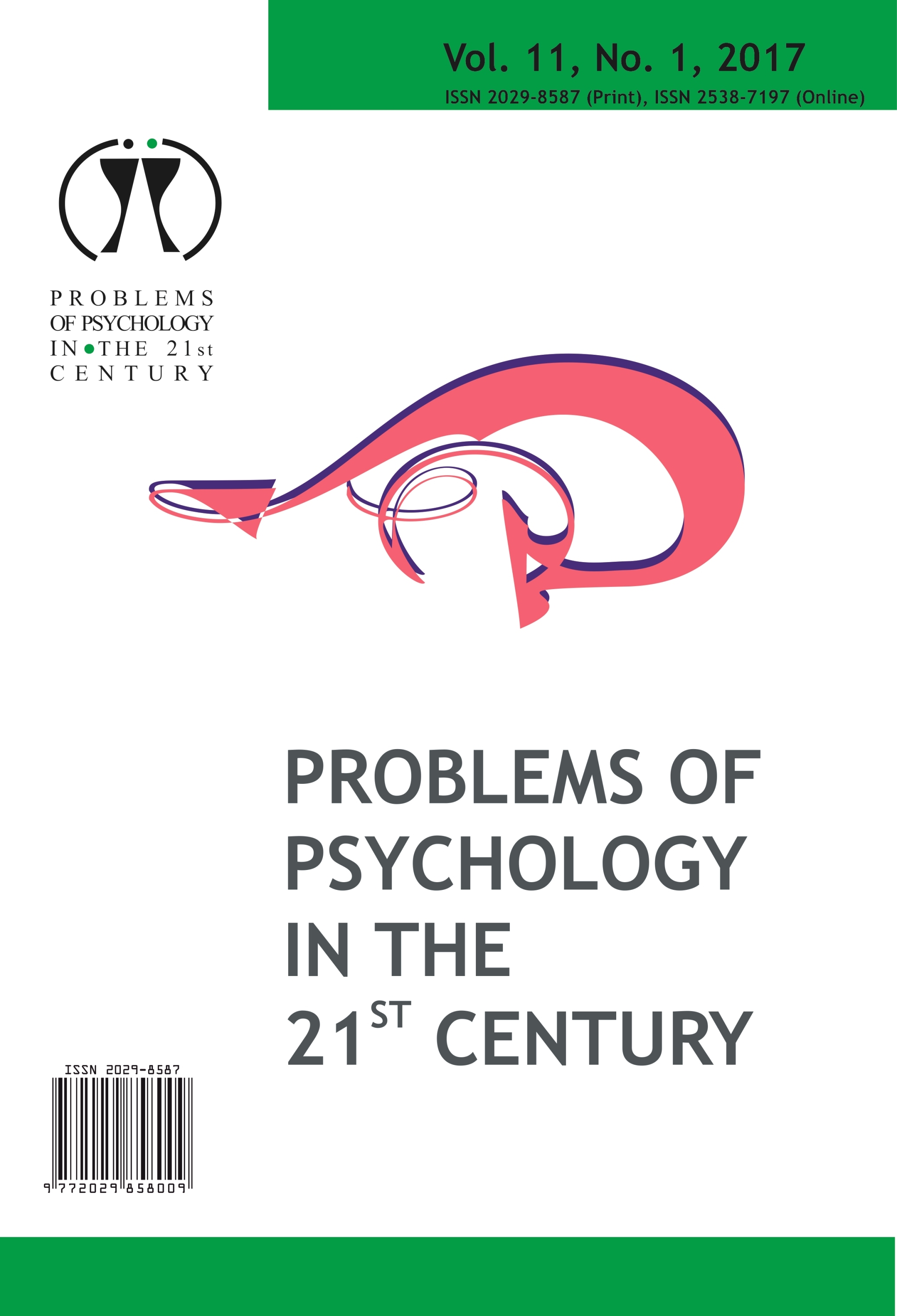STUDENTS’ SELF-ASSESSMENT OF ONE’S ABILITIES FOR THEIR LIFE GOALS ACHIEVEMENT
STUDENTS’ SELF-ASSESSMENT OF ONE’S ABILITIES FOR THEIR LIFE GOALS ACHIEVEMENT
Author(s): Stanislava Stoyanova, Stavroula Roumbou, Christos Douvlos, Tsvetelina Hadzhieva, Stavroula-Vera Strychnou, Dimana Arnautovska, Nikolay IvantchevSubject(s): Social Sciences, Psychology
Published by: Scientia Socialis, UAB
Keywords: aspiration level; frustration tolerance; life goal; perceived self-efficacy; positive self-talk;
Summary/Abstract: Goal achievement is considered to be related to need satisfaction, motivation, and self-esteem. The self-assessed abilities for goal achievement were operationalized as positive self-talk, perceived self-efficacy, the performance level of doing a task, the aspiration level, the in/congruence between performance and prognosis, and frustration tolerance to pursue one’s goals in spite of some obstacles. In total, 392 students whose mean age was 21 years old were investigated, divided in sub-samples, with the positive self-talk scale from the ASTQS questionnaire, the self-efficacy scale by Schwarzer & Jerusalem, and the AHA computerized test method from Vienna test system. Students’ self-assessment of one’s abilities for goal achievement revealed the most frequent high levels of perceived self-efficacy and good performance in coding tasks. The other self-assessed abilities for goal achievement were expressed more often at a medium level. The gender differences in the performance level of doing a task were compared to some previous results that indicated a variety of trends, because of the age peculiarities and the types of the tasks that were executed. The advance in age was related to more frequent use of positive self-talk and lower aspiration level, besides to lower performance level. The proposed model of the abilities for goal achievement was successfully approbated in this study revealing the strengths in the students’ self-assessment of one’s abilities for goal achievement and some weaknesses that should be the focus of further interventions in order to increase the students’ frustration tolerance ability and the use of positive self-talk.
Journal: Problems of Psychology in the 21st Century
- Issue Year: 11/2017
- Issue No: 1
- Page Range: 59-72
- Page Count: 14
- Language: English

